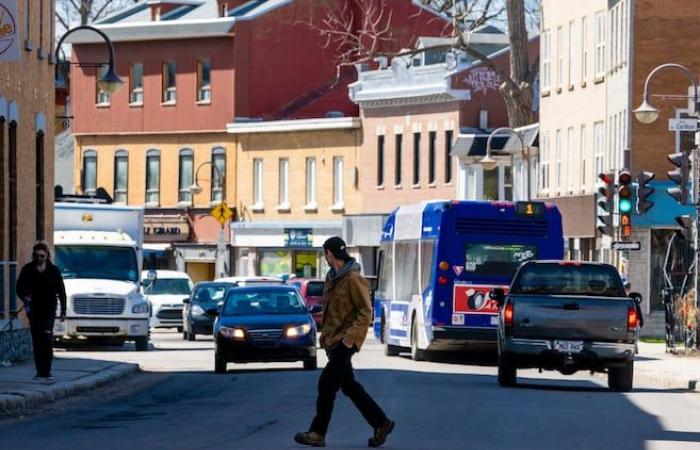The mayor of Quebec, Bruno Marchand, expected it: on the eve of announcing to motorists in the region that they would be taxed more from 2025, he was already predicting an outcry.
This wave of opposition is reflected in the most recent SOM survey.The Sun-FM93 conducted from October 22 to 27, a little over a month after confirmation of the amount to be collected.
And the results are unequivocal.
No less than 43% of respondents say they are “totally opposed” to a tax on registration to finance public transport. Added to this is a proportion half as large (21%) who agree with the idea, but who consider the chosen amount “too high”.
Together, critics of the $60 registration tax therefore represent almost two-thirds of those surveyed.
An opinion that is expressed in the majority in several age groups. “Young people and those aged 65 and over better understand why, but those aged 45-54 and 55-64 are the most likely to be opposed to the tax, regardless of the amount,” analyzes the vice-president and head of business strategy at the SOM firm, Éric Lacroix.
“An addition on the toast”
The Marchand administration will draw this sum next year from the pockets of some 300,000 car owners in Quebec to help reduce the anticipated deficit at the Réseau de transport de la Capitale (RTC) and for the addition of new services, especially in the suburbs.
Already, motorists paid $30 for these purposes when renewing their registration annually. For 2025, the total expenditure will therefore amount to $90 and the tax will subsequently be indexed each year.
Some 300,000 motorists in Quebec City will pay $60 more on their registration — for a total of $90 — starting in 2025.
(Caroline Grégoire/Archives Le Soleil)
In a completely different economic situation for households, the results of the survey could have been very different, the pollster presumes. But inflation hasn’t helped.
“It’s just $5 more per month, but it’s happening in an inflationary context and it’s an added drop as people pay more and more for everything. It was perhaps not the smartest thing to do at the moment,” said Mr. Lacroix.
“It’s an addition to the cost of housing, groceries and everything else that costs more.”
— Éric Lacroix, vice-president and head of business strategy at SOM
Likewise, the polling expert puts forward the idea that part of the population considers that other measures could have been taken before arriving at the solution of a new tax. “People don’t necessarily receive it well, while there is this perception that the RTC’s finances have not been cleaned up.”
Unloved, but “necessary”
At the center of the spectrum, there remain people who would have preferred that the Marchand administration not opt for an increase in the registration tax, judging however that the context requires it. At 17%, they admit that they “don’t like” the higher bill, but that it is “necessary”.
A little more than one in ten respondents agree with the increase in the registration tax and a slim 3% even go so far as to say that it “could have been higher”.
Almost all of the 514 people surveyed had an opinion on the question, with only 3% choosing not to answer it.
Open battle
In this matter, the Marchand administration announced its colors in May, letting it be known that it would indeed impose a higher contribution on vehicle registration from next year.
And even before making his decision on the amount to be collected – which may have affected his popularity rating in recent months – the mayor of Quebec knew that it would not be popular. But argued that it was necessary to wage “war on congestion”.
“You’re going to see people who are probably going to be very critical and I understand them. It sickens us all […] We know that citizens are caught by the throat. We are not so naive as to think that people will say that this is good news,” he declared in September.
Bruno Marchand has repeatedly accused the Legault government of “disregarding responsibility” for its mission to finance public transportation and passing the burden on to cities.
Since 1992, the registration tax for Quebec motorists has not been indexed.
With the extra $60 in revenue, Quebec City estimates the increased revenue it will receive for the RTC at $18.4 million.
This online survey was conducted from October 22 to 27, 2024 among 514 French-speaking Quebec adults in Quebec City. The sample was drawn from the SOM Gold panel, which is made up of individuals recruited randomly by telephone (landline and cell phone). The data were weighted to best reflect the characteristics of the population by age, sex, household size and education. The maximum margin of error, for all respondents, is +/- 5.1%, 19 times out of 20.






